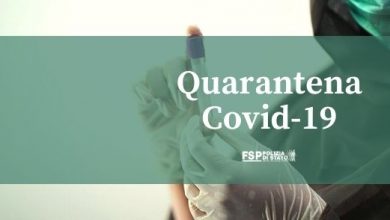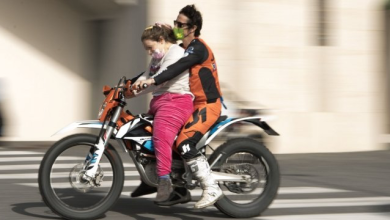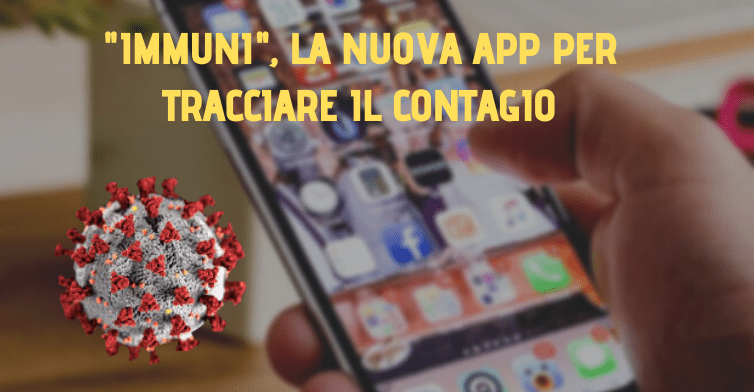
Anonymity, bluetooth, voluntariness. How Immuni works the app to track infections.
The app will be used to track coronavirus cases in phase 2
Italy has chosen the app that will help trace infections in phase 2. It is Immuni, a solution born from a synergy between the Santagostino Medical Center and Bending Spoons, an Italian app development company for iOS.
What is contact tracing, i.e. contact tracing
It is one of the "public health actions used for the prevention and containment of many infectious diseases because it can help identify potentially infected individuals before symptoms emerge and can prevent subsequent transmission of secondary cases", reads the order with which the Extraordinary Commissioner Domenico Arcuri has ordered the signing of the contract for the free concession of the app by the Milanese Bending Spoons. The importance of accurate control of infections was also underlined by the director general of the World Health Organization, Tedros Adhanom Ghebreyesus, who in March, at the height of the epidemic in our country, indicated the way to interrupt the chain of the virus: test all individuals with suspected coronavirus infection, isolate them if positive, trace their contacts up to the two days preceding the symptoms and extend the test to these people as well.
 The application of new technologies allows for a much more efficient and rapid proximity tracking than the traditional one which is not always effective and involves a greater expenditure of resources. The app proposed by Bending Spoons and Centro medico Santagostino should allow you to do just that: trace the people with whom the Covid-19 positive subject has come into contact in the previous days and reconstruct the history of his movements. But how to reconcile all this with privacy?
The application of new technologies allows for a much more efficient and rapid proximity tracking than the traditional one which is not always effective and involves a greater expenditure of resources. The app proposed by Bending Spoons and Centro medico Santagostino should allow you to do just that: trace the people with whom the Covid-19 positive subject has come into contact in the previous days and reconstruct the history of his movements. But how to reconcile all this with privacy?
Anonymity, bluetooth and voluntariness
In compliance with the guidelines on the protection of personal data adopted at European level, Immuni: - will guarantee anonymity - will not use geolocation (as occurs in South Korea, for example) - will exploit Bluetooth connectivity - will have a voluntary basis of use L The app is essentially supposed to allow users to keep tight control over their data. Contacts made with others are traced, but remain 'locked' in the user's smartphone until it is certain that the person who installed it on their mobile phone has tested positive for Covid-19. At that point the person himself can give consent to the processing of his data stored on the mobile phone, thus allowing to trace all those with whom he has come into contact in the previous days.
Diary and tracking
The app, from what has been learned so far, consists of two parts: a individual health records and its possible symptoms, if affected by coronavirus, and a contact tracing which will allow the software to recognize and keep track of the devices with which the patient's smartphone has come into contact. None of the data collected will be collected or disseminated before the patient, if suffering from covid-19, has decided to give consent to their use.
The clinical diary
It is a record of a person's health status. The data that the user chooses to enter is indicated (a bit like for health or fitness apps): gender, age, previous illnesses, medications taken. It will be necessary to update the diary daily with any symptoms and details on the state of health. As is also the case for those who use the AllertaLOM (CercaCovid) app of the Lombardy Region.
Contact tracing via Bluetooth:
Bluetooth makes it possible to detect the proximity of two smartphones (it will be necessary to understand what are the distance parameters that will be adopted). The user will then be able to know if he has come into contact with a positive person at COVID-19. It will also be possible to retrace all the encounters of a positive person to trace and isolate the potentially infected: in fact, the app keeps a register with the anonymous identification codes of all the other smartphones in the vicinity of which one has been close.
Bluetooth or GPS?
Beyond the aspects related to privacy, bluetooth technology seems to be a more performing system in the field of contact tracing. In fact, bluetooth certifies that two phones have met directly and immediately. With geolocation systems, which in any case can have a margin of error of a few metres, a person is placed in a certain position. To certify who was nearby, it is necessary to compare the positions detected by the satellite.
Scope of the app
Immuni will be an app adopted at the national level: the fragmentation of the tracking and monitoring tools that the Regions are adopting in no particular order (such as the Lombardy Region) should not exist or at least should be reduced. It should start with some pilot regions - still to be defined - and then extend their use to a wider area.
The limits
The main limitation is the same found all over the world: the will of the user. To be effective Immuni will have to be used on a daily basis by 60 % of Italians.
Doubts about the effectiveness of apps
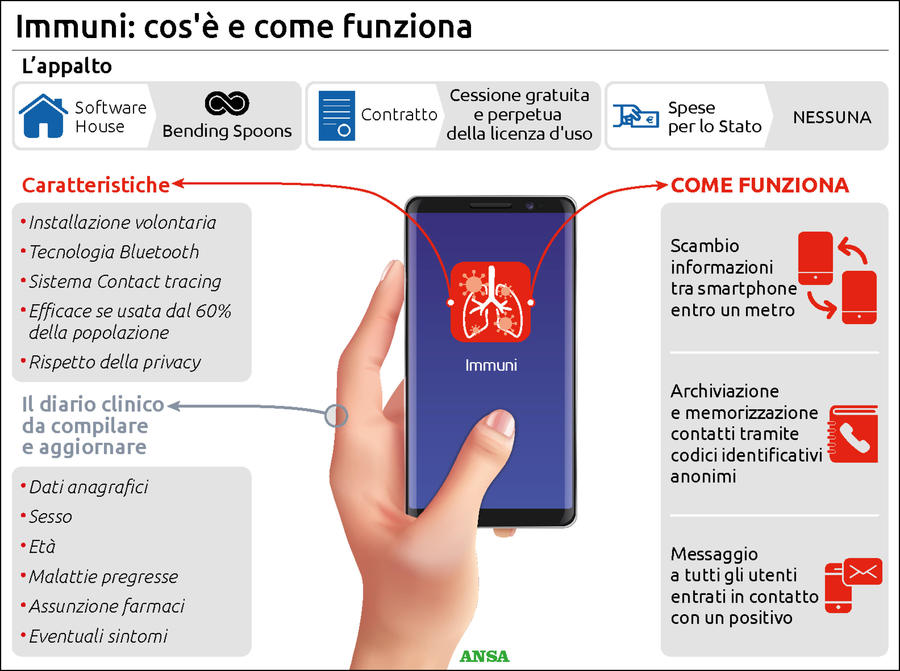 The discussion is open. And not just for privacy reasons. South Korea has often been cited as a model, as has Singapore, where solutions similar to the one chosen by Italy have been adopted. The monitoring systems used in these countries are the result of a process started to deal with previous epidemics such as SARS and MERS. And therefore we can say that, in part, it has already been run in. These are often countries whose governments enjoy a certain level of discretion in terms of data exploitation. In Italy, the map of our movements can be reconstructed using only the data of the telephone companies and those from Google, Facebook and Apple.
The discussion is open. And not just for privacy reasons. South Korea has often been cited as a model, as has Singapore, where solutions similar to the one chosen by Italy have been adopted. The monitoring systems used in these countries are the result of a process started to deal with previous epidemics such as SARS and MERS. And therefore we can say that, in part, it has already been run in. These are often countries whose governments enjoy a certain level of discretion in terms of data exploitation. In Italy, the map of our movements can be reconstructed using only the data of the telephone companies and those from Google, Facebook and Apple.
As far as privacy is concerned, regulated in Europe by the GDPR, it must be remembered that the decree-law of 9 March for the strengthening of the National Health Service provides, in article 14, exceptionally and for the duration of the COVID-19 emergency, a derogation from the GDPR for the treatment and communication by qualified subjects of the health data of citizens affected by the Coronavirus.
He expressed himself on this point the European Data Protection Board (EDPB) which, in a note issued on March 19 entitled Declaration on the processing of personal data in the context of the COVID-19 epidemic, specified that "Public authorities should first of all try to process location data in an anonymous way (that is, to treat data in an aggregated form and in such a way as not to allow the subsequent re-identification of persons), which could make it possible to generate analysis on the concentration of mobile devices in a given place (“cartography”).
The Singapore case
One of the applications in use is TraceTogether: it allows local authorities to quickly trace people who have been exposed to confirmed cases of coronavirus and to identify people who have been in close proximity – within a radius of 2 meters for at least 30 minutes – of coronavirus patients using bluetooth technology. An aspect that, according to the Government Technology Agency (GovTech) and the Ministry of Health (MOH), can prove particularly useful in cases where infected people do not know everyone with whom they have been in the vicinity for an extended period of time.
"I think Singapore is a perfect example to anticipate what could happen in Italy, because the lockdown has not been decided there but only some restrictions and the app as an aid for tracing the infections", explains Marco Trombetti to AGI, founder of Pi-Campus and one of the leading experts in Italy on new technologies. So Singapore is experiencing a situation similar to what we can imagine in Italy with Phase 2 of the epidemic. “And if we look at what happened in Singapore, we can say it was a disaster,” he comments. “The application adopted by the government has been downloaded less than a million times on about six million inhabitants, approximately 18%. Of these, only the 50% activated the app, therefore around half a million people. Not only. There is a gap in the data collected because Bluetooth does not automatically track iPhones, which in Singapore are about 38% of used smartphones”.
Expert opinion:
"The source code is clear" "The source code of the Immuni app should be made clear for transparency and the possibility of integration" by other developers: this is the opinion of Stefano Zanero, associate professor of computer security at the Milan Polytechnic. “Open source – he underlines – is a choice made by other tracking systems in 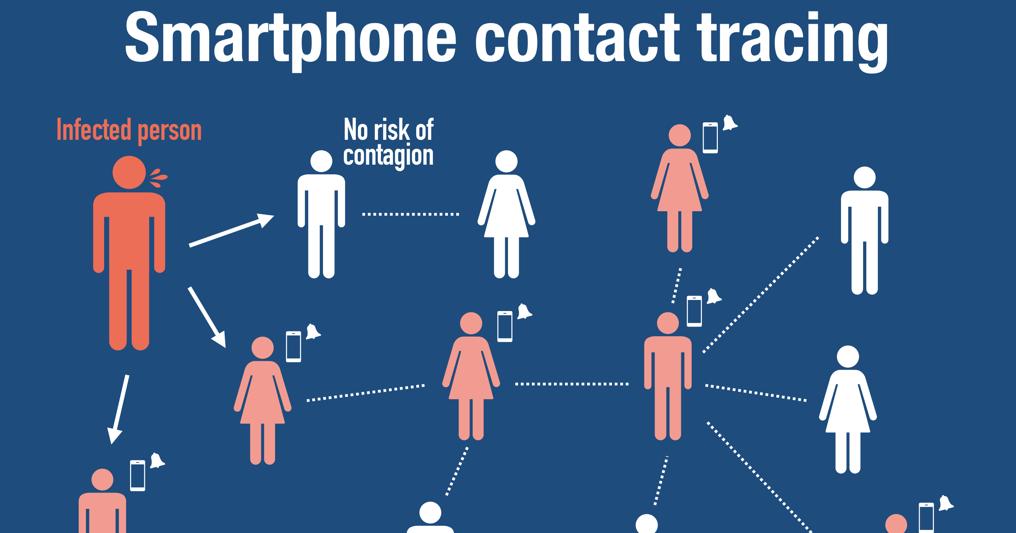 Europe and also from Singapore”. "Releasing the source code is used to be able to analyze the app from a security and privacy perspective, to see exactly what the application is doing behind the scenes, as well as to discover any vulnerabilities", says Andrea Zapparoli Manzoni, international government cyber security expert ”Since Bending Spoons – he continues – has given the source code and intellectual property of the app to the government, it should be the latter to release it”.
Europe and also from Singapore”. "Releasing the source code is used to be able to analyze the app from a security and privacy perspective, to see exactly what the application is doing behind the scenes, as well as to discover any vulnerabilities", says Andrea Zapparoli Manzoni, international government cyber security expert ”Since Bending Spoons – he continues – has given the source code and intellectual property of the app to the government, it should be the latter to release it”.
“It is not easy to judge this application because there is still nothing public, a white paper, a document explaining the technical characteristics and not even the observations of the task force of the Ministry of Innovation that chose the app – observes Zanero – There are various ways to do 'contact tracing' in respect of privacy and with the use of bluetooth and it seems that the chosen app goes in this direction, but no consideration has been made public, it would be useful to evaluate it better and to understand why the choice fell on this proposal and not on others arrived at the ministry's task force, such as the other app considered in pole position, that is the Covid Community Alert app which is open source ".
Charging apps
At least sixty initiatives have been launched on a regional scale and also by individual Local Health Authorities in the digital field in the context of the fight against the coronavirus, according to the census carried out in the Third Instant Report Covid-19 by Altems, Higher School of Economics and Management of Health Systems of the 'Catholic University.
On the "digital" front in particular, the Lazio Region has ordered the activation of the "DoctorCovid" app, which allows family doctors and pediatricians of free choice to manage people in home quarantine as well as monitor citizens at home with symptoms but who had not received the swab, thus helping to decongest the activated Covid Hospitals. The other Regions are characterized by various initiatives launched at company level, 21 globally in the 6 regions mapped out of the 64 identified at national level (all Regions). Of these, 8 were activated by healthcare companies in the Lombardy Region and 8 by companies in the Veneto Region.
In Lombardy, the AllertaLOM application of the Region is active, which aims to trace the map of the contagion. In the message sent via sms, residents are asked to complete the anonymous questionnaire on their state of health every day, which is contained in the application to "help trace the map of the infection". Almost one million Lombards have joined the initiative. "Thanks to the analysis of these statistical data - said the vice president of the Region Fabrizio Sala - referring to the largest area that suffered the greatest contagion from coronavirus, our researchers will be able to define a risk map". Sala recalled: "The questionnaire is absolutely anonymous, it must be repeated every day and I invite those who have already downloaded our free app from the iOS and Android platforms to invite people they know, their children and their contacts to involve as many citizens as possible in a to quickly reach our goal of one million Lombards who have the app, participate in our project and update their data daily".
Related news: "Immuni" app: who will manage the data of our movements?
Immuni, the anti-coronavirus app: the Fact: "Behind are the children of Silvio Berlusconi and Renzi's friend"
Libero Quotidiano – 18 April 2020
The companies involved in the “Immune” app to track possible coronavirus infections there are three: bending spoons, who builds the infrastructure, the Luca Foresti's Sant'Agostino Medical Center and the e-colossus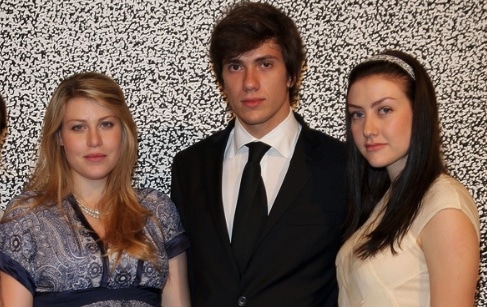 marketing Jakala, driven by Matthew de Brabant. All based in Milan. Bending Spoons, reports the Daily fact of Marco Travaglio, was founded by four guys in 2013 - Francesco Patarnello, Luca Ferrari, Matteo Danieli and Luca Querella - and develops applications that have had tens of millions of downloads. At the end of 2019 it had about 130 employees and a turnover (which was expected to more than double compared to 2018, 90 million against the 37.5 certified by the latest available balance sheet).
marketing Jakala, driven by Matthew de Brabant. All based in Milan. Bending Spoons, reports the Daily fact of Marco Travaglio, was founded by four guys in 2013 - Francesco Patarnello, Luca Ferrari, Matteo Danieli and Luca Querella - and develops applications that have had tens of millions of downloads. At the end of 2019 it had about 130 employees and a turnover (which was expected to more than double compared to 2018, 90 million against the 37.5 certified by the latest available balance sheet).
Numbers that have attracted the interest of investors: in July 2019, with 5.7%, three companies entered the ownership structure - hitherto made up of the founders and some employees of Bending Spoons - namely 14h Of Barbara, Eleonora and Luigi Berlusconi, Nuo Capital from the Pao Cheng family of Hong Kong and StarTip (vehicle of Tamburi Investments Partners spa).
“Curiously,” he writes the fact, “the H14 of second bed children of Silvio Berlusconi we also find it with a small stake in the capital of Jakala". The founder is Matthew de Brabant, supporter at the time of the Expo of mayoral candidate Beppe Sala. Luca Foresti who leads the network of polyclinics Sant' Agostino medical center in Milan “is close to Matthew Renzi: in 2013, when the Florentine was preparing to celebrate Enrico Letta, he took part in the Leopolda”.

